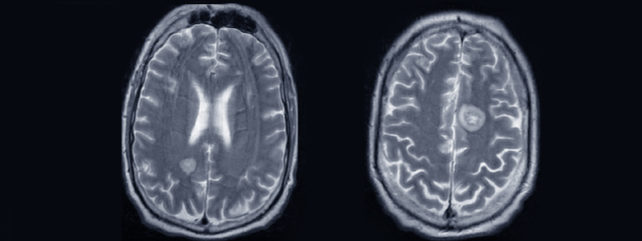A rare form of prostate cancer caused a man in his 50s to suddenly speak with an accent that sounded remarkably like an Irish brogue; a stark change that stuck with him for the rest of his life.
In medical literature, there are only two other reports of cancers triggering foreign accent syndrome (FAS). This is the first case linked to prostate cancer specifically.
FAS is an unusual speech disorder that can cause a person to suddenly break out in a 'foreign' accent for no known reason, with pronunciation shifting in ways that resemble – superficially at least – the cadence of another dialect or language.
The syndrome is most commonly associated with strokes or traumatic brain injuries. The most famous case, for example, is of a Norwegian woman in 1941, who suffered a head injury during the bombing of Oslo. A few months later, she began to speak with what sounded like a German accent.
A more recent example hit the news just a few years ago, as a woman from Arizona literally awoke speaking like "Mary Poppins". In her case, the cause wasn't clear.
Much less common are cases definitively linked with tumors of some kind. In fact, there are only two other examples listed in the literature.
According to a case study published in 2008, a woman in her 60s began to speak with a different, unspecified accent after her breast cancer had spread into her brain.
In a similar case, an Italian woman in her 50s with a brain tumor suddenly began speaking with a different rhythm and melody.
Despite the attention given to stories where people suddenly develop particular foreign accents, most cases of FAS are generic changes to speech production that can't be readily associated with any specific geographical region.
The recent case of the man from the US diagnosed with prostate cancer is a rare example of a change in voice that closely resembles a recognizable accent. He was apparently not of Irish descent and had never even been to Ireland. Yet just 20 months after being diagnosed with metastatic hormone-sensitive prostate cancer, he began to speak with a southern Irish twang.
Unlike previous case reports, this patient did not initially have any observable tumors in his brain, though some did arise as his disease progressed.
Given the timing, doctors suspect the patient's FAS was the result of a rare paraneoplastic neurological disorder (PND). PND is caused when cancers outside of the brain trigger an immune response that can impact the nervous system from afar.
Despite chemotherapy and radiation, the patient's cancer continued to rapidly progress, gradually paralyzing his body and sadly ending his life. The man maintained his Irish-sounding accent until the very end.
"This unusual presentation highlights the importance of additional literature on FAS and PNDs associated with prostate cancer to improve understanding of the links between these rare syndromes and clinical trajectory," write the case study's authors.
The study was published in BMJ Case Reports.
